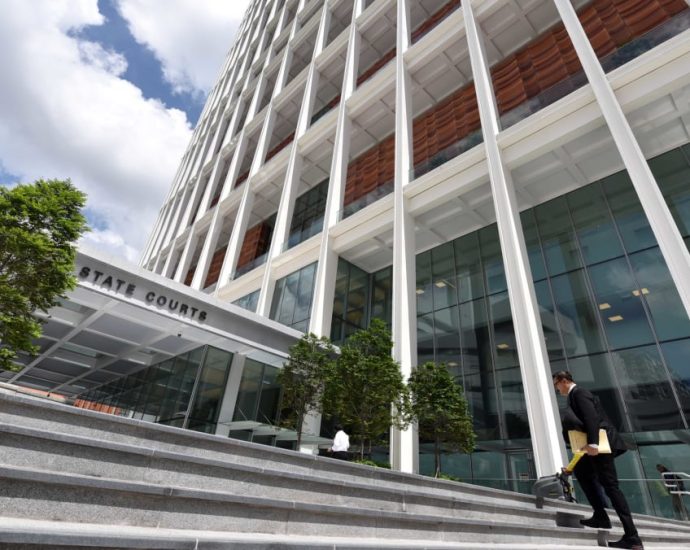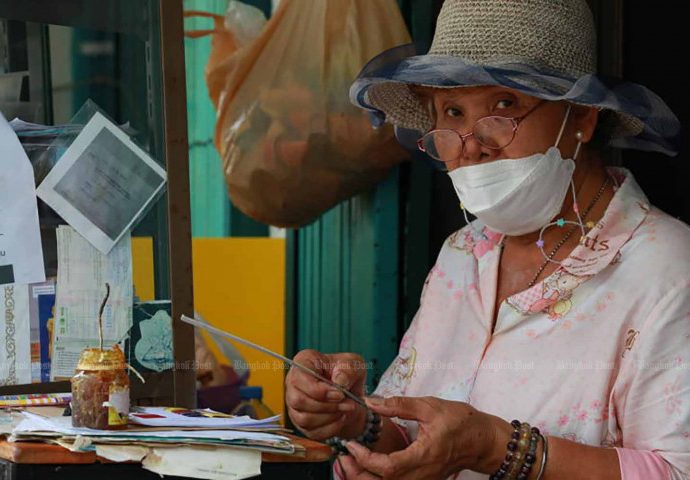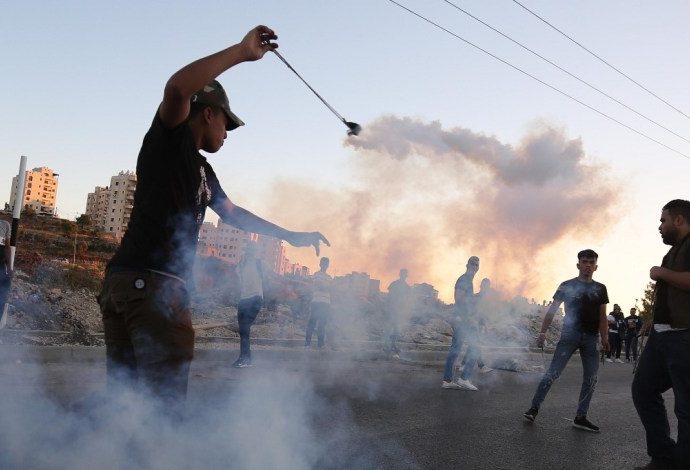Miss Universe cuts ties with Indonesian organiser as sexual harassment allegations swirl
JAKARTA: The Miss Universe Organization has cut its ties with its Indonesian franchisee and will cancel an upcoming pageant in Malaysia after contestants complained to police, accusing local organisers of sexual harassment. The New York-based organisation said in a statement late on Saturday (Aug 12) that it had decided toContinue Reading
First monkeypox fatality in Thailand
PUBLISHED : 14 Aug 2023 at 15:22

Thailand’s first fatality related to monkeypox occurred last week, a Thai man aged 34 years who already had HIV and syphilis, according to health authorities.
Dr Tares Krassanairawiwong, director-general of the Department of Disease Control, said on Monday that the patient had suffered a fever, headache, itching and a rash on his body on July 3.
He sought treatment at a private hospital in Chon Buri province on July 11. Tests on samples taken from him confirmed he had monkeypox, HIV and syphilis.
The patient had later suffered a sore throat due to a fungal infection, an opportunistic infection in HIV patients, Dr Tares said. A rash spread all over his body due to monkeypox.
He was discharged from the hospital after receiving weeks of treatment there.
On Aug 9, the man suffered fatigue and breathing difficulty. Relatives took him to the Bamrasnaradura Infectious Diseases Institute in Nonthaburi province.
By then he had a monkeypox-related rash all over his body, large areas of dead tissue on his nose and neck, infections to his limbs, lungs and brain, and severe immunodeficiency.
He received monkeypox medication and antibiotics but his condition deteriorated and the man died on the night of Aug 11.
Dr Tares said monkeypox was an emerging infectious disease in Thailand. As of Aug 8, there had been 189 cases, consisting of 161 Thais and 28 foreigners.
The disease was spreading. Most cases were among men who sex with other men, and 43% of all cases also had HIV, he said.
The disease control director-general said a common cause was a sexual liaison with a stranger who was already infected with monkeypox.
His deputy, Dr Sophon Iamsirithaworn, said monkeypox was spreading because people continued to indulge in risky behaviour.
Almost half of the new monkeypox cases had HIV, and they had put their lives at risk because their immune system was already weakened, which allowed opportunistic infection, he said.
There had been 152 fatalities related to monkeypox worldwide since the outbreak was first reported in May last year, Dr Sophon said.
Monkeypox is now being referred to by global health authorities as Mpox, and is reported to have initially spread from Africa.
Slow motion on Widodoâs go-go infrastructure drive
JAKARTA – Ever since he came to power in 2014, haste has been the name of the game for President Joko Widodo, the former town mayor whose pell-mell infrastructure program has left an indelible imprint across Indonesia while stirring controversy in its wake.
Critics say that may now be coming back to haunt him, setting back start-up dates for Jakarta’s Light Rail Transit (LRT) system and the US$8 billion China-funded Jakarta-Bandung Fast Rail project, which is now three years behind schedule and $2 billion over cost.
Both had been finally scheduled to go into service on Independence Day, August 17, but that is unlikely to happen either because of continuing technical problems and difficulties resolving access to stations.
The president has been uncharacteristically patient about the LRT, noting that it is Indonesia’s first homegrown infrastructure undertaking and that there is no need to rush its opening, particularly if safety aspects must be addressed for the 137,000 commuters who are expected to the service each day.
But for much of the past nine years, the need for speed has always been the priority for a leader intent on adding to his already impressive legacy as the “Infrastructure President.”
“I agree with the principle of what he is doing,” says a former senior government official. “But the problem has always been the implementation.”
Others in the business community have a harsher view: “It’s all being done in a hurry without any planning or proper management,” says an Indonesian consultant who requested anonymity. “He wants to leave a legacy, but things may turn out to be very different from what he had in mind.”
Blame for the LRT delays falls squarely on PT Industri Kerta Api (INKA), which manufactures the rolling stock, the collective term for trains and carriages, and construction company PT Adhi Karya, two of the state-owned companies Widodo has relied on to spearhead his infrastructure program.
Known for their inefficiency, poor management and corrupt practices, SOEs were nevertheless chosen ahead of private sector firms because they dispensed with time-consuming tendering processes and supposedly got on with the job.

That has often not been the case, most glaringly with the 43-kilometer-long Jabodebek LRT, three lines which will bring commuters into the city center from the populous dormitory suburbs of Bogor, Depok and Bekasi in the Great Jakarta area.
INKA officials have struggled to explain why there is a lack of conformity in the specifications for the automated system’s 31 driverless trains, which has meant that many have different speed and braking mechanisms.
That, in turn, has required software adjustments by German technology powerhouse Siemens to ensure, among other things, that trains stop at the right place so the doors connect with station gates.
Adhi Karya has had to deal with the consequences of an overly sharp curve on one section of the elevated track close to the heart of the Jakarta business district that forces trains to reduce speed from 50-60 to 20 kilometers per hour.
Although media reports blamed poor design and a breakdown in communication between Adhi Karya and other firms, rail experts say glitches are often inevitable in crowded cities where space is at a premium.
Adhi Karya has been one of the main subcontractors for the first and now second phase of the Mass Rapid Transit (MRT), a partly operational heavy rail system which will eventually connect the northern and southern ends of Jakarta.
Opened in April 2019, the MRT’s 16-kilometer first phase currently carries an average of 80,000 passengers a day and has transformed the face of the city center with the extensive commercial enterprises that have sprung up around it.
Transport specialists say playing a supporting role in a Japanese-funded project, even the second phase with its difficult challenges presented by a canal and a shallow water table, is very different from managing any engineering venture in its entirety.
While Jakarta already has a suburban train service, the well-run MRT has been its first venture into modern mass transit. The LRT will complement that and may well have an impact on the city’s love affair with the motorcycle.
Launched in 2015, the LRT was originally expected to be in operation by 2019, already an ambitious target, but necessary changes in the signaling system and inevitable land acquisition issues led to delays and cost overruns.
In fact, a lack of land for a depot led to an incident in October 2021 when a train on a test run smashed into the back of a line of parked trains which had been placed in storage on one side of the newly completed twin-track.
That prompted another adjustment to the automated control system. The ensuing Covid-19 pandemic caused further setbacks, as it did with many of Widodo’s cherished infrastructure projects.
Among those is the $33 billion new capital in East Kalimantan, where the president hopes to celebrate the 79th anniversary of Indonesia’s independence, albeit with only the new palace and some key government buildings to show.
China was awarded the 142-kilometer fast rail project in September 2015, much to the chagrin of Japan, which had done most of the feasibility work and was widely favored to get the nod.
But the government said China was preferred because it did not require an official loan guarantee, nor any funding from the Indonesian government. But in the end, it came down to how fast it could be completed.
Foreign policy experts were critical of the way the then-new Widodo government and then-state enterprise minister Rini Soemarno pitted China against Japan, which has been a major investor in Indonesia for decades.
Chief Maritime Affairs Minister Luhut Panjaitan, who Widodo placed in charge of the venture, said at the time that Japan took too long on projects, noting as a comparative example that China could construct a nickel smelter in only 18 months.
But problems dogged the rail project from the start, most notably land acquisition which has proved a major obstacle to many public projects – even since passage of the 2012 Property Law that applied the principle of eminent domain.
As much as Chinese President Xi Jinping complained to Widodo about the slow progress of a project under China’s signature Belt and Road Initiative, the project wasn’t going anywhere until developer PT Kereta Cepat Indonesia China (KCIC) acquired at least 210 hectares of prime industrial land.

Overall, the developer needed at least 550 ha, crucial not only to securing the right of way for the track itself, but also for commercial and residential development to make the project financially viable.
With fares unable to cover costs, transit-orientated development (TOD) has been notably successful in building mass transit projects around the world that otherwise could not have survived without state subsidies.
Even now, there are worries the project will become a white elephant, with commuters often having to travel an hour or more to the stations on both ends of the line, which tends to negate the fast-rail concept.
Panjaitan has long acknowledged that fast-rail makes little sense unless it covers at least 300 kilometers, not the relatively short distance between Jakarta and Bandung where the gradient and several stops will prevent the train attaining the speeds that make fast-rail fast.
Extending the Jakarta-Bandung line is still part of the Transportation Ministry’s long-term master plan, but it now wants to remove the separate Jakarta-Surabaya semi-fast-rail project from the list of National Strategic Projects (NSP), which only appears to have been proposed to placate the Japanese.
Hawker who became insurance agent after traffic accident gets awarded S$128,000 in damages

SINGAPORE: A hawker who suffered injuries in a traffic accident and had to give up his food stall to become an insurance agent was awarded about S$128,000 (US$94,500) in damages after suing the driver.
The court found the case “rather novel” as the question arose as to whether the former hawker could claim for a loss of earning capacity, even though he earned more after the accident.
In a judgment made available on Saturday (Aug 12), Deputy Registrar Loh Hui-min found that he could.
The accident occurred on Jul 30, 2018 when the plaintiff’s motorcycle was hit by a vehicle driven by the defendant, Mr Yap Choon Lye.
The accident left the plaintiff, Mr Shawn Tan Shin Han, with leg lacerations that required surgery, a skin graft and physiotherapy to walk without aid.
As a result, Mr Tan had a permanently stiff knee and an abnormal gait that would mean he was likely unable to resume his job as a hawker.
The driver, Mr Yap, was found to be 90 per cent liable for the accident.
Thus, Mr Tan was awarded S$128,471, which was 90 per cent of the total amount of S$142,746 assessed by the court.
The total damages Ms Loh awarded to Mr Tan include S$27,000 for right leg lacerations, S$16,000 for multiple scarring, S$33,000 for future medical expenses, S$700 for his damaged motorcycle and loss of use, and about S$767 for loss of the equipment he bought for his hawker business.
LOSS OF EARNING CAPACITY
After the accident, Mr Tan gave up his job as a hawker running a western food stall because of the injuries he suffered.
He claimed that he was forced to give up his dream of being a successful hawker and business owner, saying that business was doing well and making a profit some three months in. It had also attracted “glittering reviews on social media”, he said.
He said he had lost out on business expansion and franchising opportunities, which would have given him an income of S$10,000 to S$20,000 a month.
However, Ms Loh found no credible evidence of the business’ alleged prospects. The stall had not been operating for a long time enough for the court to find that it would have continued successfully in the long term, she said.
In fact, his business partner had said a month before the accident that he wanted to leave.
After the accident, Mr Tan found a job as an insurance agent and earned more than he did before the accident – an average of S$3,612 a month in 2019 and 2020.
However, because of his disabilities, he had to take breaks more frequently to rest or stretch at roadshows or meeting potential clients, impacting his work.
Ms Loh accepted that there was “a real risk” that Mr Tan might lose his job as an insurance agent. Mr Tan was 31 years old at the time of assessment and had a long working lifespan ahead of him, in a highly competitive industry where he is still a rookie trying to build up his clientele, she said.
“Work as an insurance agent is also heavily reliant on the plaintiff’s ability to network and meet clients, and his permanent disabilities will continue to impact his ability to do so,” said Ms Loh.
She said Mr Tan would be at a disadvantage in competing for jobs as an insurance agent or other roles that require him to walk or stand for extended periods of time.
On whether Mr Tan could claim for loss of earning capacity since he was earning more now compared with his pre-accident job, Ms Loh said that the purpose of such a claim was to compensate the claimant for the financial harm brought on by the competitive disadvantage caused by his injuries.
The fact that Mr Tan’s post-accident income was more than his pre-accident income would not be a bar to such a claim, she said, awarding Mr Tan S$40,000 for loss of earning capacity.
Ms Loh also awarded about S$13,900 for Mr Tan’s pre-trial loss of earnings. This was based on a figure of S$966.08 per month he made as a hawker.
FAILED CLAIMS
Mr Tan had tried to claim S$6,000 for his loss of marriage prospects due to his scarring and how the accident affected his ability to have a stable career, but the court rejected this.
Previous cases where claimants were awarded damages for loss of marriage prospects were for incurable terminal cancer and severe disability, said Ms Loh.
She added that “running a hawker business was by no means more stable an income source than being an insurance agent”.
“In fact, by his own admission, the plaintiff has better working hours as an insurance agent which gives him more time to date seriously,” she said.
Mr Tan had also tried to claim for the cost of a car he bought after the accident, that he had said was necessary as he could no longer ride a motorcycle.
The court rejected this after Mr Tan failed to explain why he could not rent a car instead or take taxis or Grab. Mr Tan also admitted that he had always intended to buy a car.
The defendant was separately ordered to pay Mr Tan costs of S$25,000.
Parties slam new restriction on old-age allowance

The Move Forward and Thai Sang Thai parties have slammed the caretaker government under Prime Minister Prayut Chan-o-cha for issuing a new regulation setting income limits for people receiving old-age pensions.
The new regulation was signed by caretaker Interior Minister Anupong Paojinda and published in the Royal Gazette and is effective from Aug 12.
The old regulation was for local administrations to pay universal monthly allowances of 600-1,000 baht to all elderly people – 600 baht for people aged 60-69, 700 baht for people aged 70-79, 800 baht for people aged 80-89, and 1,000 baht for people aged 90 years or more.
Item 6 (4) of the new regulation states that only people with no income, or insufficient income to cover the cost of living, are entitled to the monthly age allowance from the state.
However, Item 17, a provisional clause of the new regulation, states that the new criterion for payment of the age pension does not apply to people who registered for the allowance with their local administration before Aug 12, 2023. This means those currently receiving the allowance are not affected.
Wiroj Lakkhanaadisorn, a Move Forward list MP, said the new criterion had replaced universal coverage for the elderly.
It would have a severe impact on people reaching 60 years-old in the future. People turning 70, 80 or 90 and looking forward to the larger allowance would also be wondering if they would get it or not and, if so, when.
In addition, it was not clear if pople turning 60 who under the new criterion were not entitled to the allowance, but later find they cannot make ends meet, would be able to register for and receive the allowance, and how.
Mr Wiroj said Thailand now had about 11 million people aged 60 years or more. If payment of the age allowance was based on the database for state welfare cards, only 5 million of them would be entitled to the age allowance. The other 6 million would be left out in the cold by the government.
The MFP MP said Section 11 (11) of the Elderly People Act stipulates that payment of the old age allowance must be made on a monthly basis and must be universal and fair. The requirement for the elderly to prove their poverty may prevent them receiving state welfare, which was in breach of this law.
He said people affected by this change could petition the Administrative Court.
Khunying Sudarat Keyuraphan, leader of the Thai Sang Thai Party, said she strongly opposed the new Interior Ministry regulation.
The new criterion for receipt of the monthly allowance for the aged was a serious violation of the principle of universal coverage for state welfare, and it was discriminatory.
It ias not fair that elderly people should have to prove they do not have enough money to cover the cost of living in order to get the allowance, she said.
“The government … should instead lay a foundation for state welfare for all. The government should not use the state budget to create a debt of gratitude or to divide the people into the rich and the poor,” Khunying Sudarat said.
The Move Forward and Thai Sang Thai parties both propounded policies of paying a montly allowance of 3,000 baht to all elderly citizens during campaigning for the May 14 general election.
Lion shot dead after escaping from South Korean farm
SEOUL: A lion was shot dead in South Korea on Monday (Aug 14) after escaping from a privately owned farm and triggering a search by more than 100 police officers and the evacuation of dozens of campers from a nearby camping area. The lioness, named Sasoonee, was reported to beContinue Reading
US-Israel relations plumb lowest level in decades
For most of Israel’s 75-year history, its closest ally has been the United States, prepared to use its UN Security Council veto and invariably willing to encourage military collaboration as well as providing plenty of direct aid.
But that relationship is highly stressed at present, mainly down to the Netanyahu government’s determination to curb the power of the judiciary, especially the Supreme Court, in favor of more power for the Knesset.
As Time magazine put it recently: “The sources of Biden’s grievances are manifold. Since reclaiming power, Netanyahu has formed a hard-right coalition filled with ultraconservative and ultra-Orthodox voices. They have moved quickly to expand Israel’s settlement presence in the West Bank – gobbling up land that Palestinians see as their own and making the conditions near-impossible for an independent state to ever emerge there.”
The White House’s worries go beyond Israel’s current domestic instability, even with the weekly mass public protests against the judicial changes which the US president, Joe Biden, cautioned the Israeli government not to pursue.
They also concern the security of the occupied West Bank, where an increase in violence has been manifest over the past couple of years, mainly down to greater numbers of Jewish settlers with deep religious convictions.
They now number more than half a million across the West Bank, with many seeing it as their God-given land.
Meanwhile, the existing Palestinian population experiences more and more limitations, with security controlled by Israeli forces. Extremists among the settlers persistently harass and disrupt Palestinian life, including attacks on villagers. All too often, Israeli security forces just stand by, even in the face of direct violence.
The Biden administration rarely says much, but there has been a change in its overall attitude, shown by the recent celebration of Israel’s 75th anniversary. It was the relatively moderate if largely ceremonial president, Isaac Herzog, who was invited to Washington to address the US Congress in July, rather than the prime minister, Benjamin Netanyahu.

Far more pointed was the use of the term “terrorism” against Israel by the state department in response to the killing of a young Palestinian, 19-year-old Qusai Jamal Maatan, near Ramallah by settlers on August 4.
The Israeli agriculture minister, Avi Dichter, tried to dismiss this as a misinformed comment. But the state department confirmed the specific use of the term.
Behind all of this is a major problem for the Israelis in securing the West Bank for the Jewish settlers. With Netanyahu’s government dependent for its very survival on backing from ultra-Orthodox and ideologically nationalist politicians in the Knesset, the settlers have to be afforded all the protection they require.
But the Israeli Defence Force (IDF) is deeply reluctant to occupy even small areas of territory because of the determined opposition they would face from Palestinian Islamic Jihad (PIJ) and other paramilitary groups.
Over the past two decades, the IDF has learned the hard way to do everything it can to avoid frontline troops being in close contact with Palestinian populations for any length of time. In a rare event on July 3, the IDF forced entry into the Palestinian refugee camp in Jenin, a tightly packed district with 17,000 people crammed into a few streets and alleyways.
But this involved a brigade-sized force of well over 1,000 elite troops backed up by Shin Bet intelligence agents, Magav border police, armed drones, helicopter gunships, armored personnel carriers and armored bulldozers.
The entire operation of combing the camp for explosive device production workshops and other paramilitary sites linked to PIJ was compressed into just 48 hours of intensive activity. In the process, 13 Palestinians and one Israeli soldier were killed and scores of Palestinians were taken into custody.
This raid was most likely prompted by a well-organized PIJ ambush of an Israeli army patrol near Jenin in June, when five armored personnel carriers were damaged. A subsequent IDF rescue operation required a substantial ground force backed up by AH-64 Apache helicopters using air-to-ground missiles and took nine hours to complete.
Security and settlers
Why is there such a problem? Most analysts had come to the view that Israel had sufficient forces needed to ensure its own security – whether in southern Lebanon, Gaza or the West Bank.
The reason goes back over two decades with the IDF finding that, first in southern Lebanon and then especially in Gaza, ground troops facing highly motivated and well-trained paramilitary opponents fighting on their own home ground took unacceptably high casualties.
The largest IDF operation in Gaza of recent years was the seven-week Operation Protective Edge back in 2014 to suppress rocket fire into Israel and destroy underground facilities. The elite Golani Brigade led the way, but took heavy casualties with 13 killed and 50 injured on the first day alone.
IDF deaths over the seven weeks were 64, with 469 injured. These were tiny compared with over 2,000 Palestinians killed and about 10,000 injured, mostly civilians, but still unacceptably high for the Israelis.
Since then, Israel has opted more for remote war using missiles, bombs and artillery together with anti-rocket technologies, together with selective assassination raids by Special Forces.

The West Bank was relatively easy to control before the expansion in Jewish settlements, albeit appallingly difficult for Palestinians. Many settlers live close to Palestinian towns and villages and are afforded protection by the Israeli government which is controlled by ultra-right parties sympathetic to the settler movement.
Such has been the change in Israeli politics that even if parliamentary control slips away from the likes of Netanyahu, that will not end the problem. The settlers will remain, they are well armed and utterly convinced that they are right.
Netanyahu and the religious right have unleashed a new force and it may be that some in the Biden administration recognize the implications of this and do not like what they see.
Paul Rogers is Professor of Peace Studies, University of Bradford
This article is republished from The Conversation under a Creative Commons license. Read the original article.
Man conspired with fellow reservist to get S$207,000 in bribes for Singapore Airlines projects

SINGAPORE: A man conspired with his friend from National Service, who worked for Singapore Airlines (SIA), to solicit bribes of more than S$207,000 (US$153,000) from a vendor for SIA projects.
Rex Zhang Jiahao, 38, pleaded guilty on Monday (Aug 14) to one count of conspiring to receive gratification under the Prevention of Corruption Act. Another two charges will be considered in sentencing.
The court heard that Zhang, a freelance interior designer, got to know co-accused Lionel Low Jun Jie, 36, through their reservist duties.
Low was an assistant manager of properties development at SIA, and managed ad-hoc renovation projects for the airline.
He would conduct quotation or tender exercises and shortlist contractors for interviews, before recommending the contractor to be awarded the project.
Low had been with SIA for six to seven years when he went for a reservist stint with Zhang in 2018.
Low was looking for building contractors for an SIA project, involving the construction of a two-storey building for classrooms to be used for training.
He asked Zhang for recommendations, suggesting that the designer could tell the contractor that he had an SIA contact – without revealing Low’s identity – who could help secure the tender.
On this basis, Zhang could then ask for a commission from the contractor, Low added.
Zhang agreed, and the pair said they would split the commission equally between the two of them.
He managed to find a contractor, 51-year-old Joseph Ang Kok Leng, manager of LIN ID and LIN Builders, who was interested but unsure if he could meet SIA’s requirements.
Zhang then told Ang that he could help him qualify for the project by speaking to his SIA contact.
THE CONSPIRACY
To help Ang in preparing documents for a bid, Zhang passed on confidential information about the project, that he had obtained from Low. This included SIA’s S$2.5 million budget for the classroom project, as well as expected timelines and milestones.
Before Ang submitted his quotation to SIA, he sent it to Zhang, who discussed with Low and told Ang what to change.
Ang offered to give Zhang 5 per cent of the contract amount of S$1.4 million as a “commission”.
The project was eventually awarded to Ang’s company for about S$2.2 million, including a construction fee of S$1.5 million and other costs.
Ang gave Zhang a “commission” of S$177,000 for this project. He later gave him another sum of about S$30,000 for his help in securing a contract supplying furniture for the classrooms.
The entire project was the largest that Ang’s company LIN ID had won and completed as of April 2021.
SIA paid LIN ID progressively, and Ang gave a total of S$207,535 in gratification to Zhang, across six occasions in 2019. Zhang split the money equally with Low, as agreed.
Zhang later said he knew it was wrong of him and Low to ask for a commission from Ang, in exchange for help to secure the contracts.
He said he did it because he needed money for his wedding and for renovating his new house. He spent the bribes on wedding, holiday and living expenses as well as his wife’s maternity bills.
Zhang will return to court for mitigation and sentencing in September.
The cases for Low and Ang are pending.
Shanghai Exchange urges bankers to closely vet Chinese medical firms IPOs: Sources
SHANGHAI: The Shanghai Stock Exchange has urged bankers to pay close attention to the marketing practices of Chinese drug and medical equipment makers seeking initial public offerings (IPOs) amid an escalating anti-corruption drive in the sector, sources said. The bourse asked investment bankers and lawyers to ensure drugmakers’ compliance andContinue Reading
Huaweiâs Q2 results defy US sanctions

Huawei’s business results improved in the second quarter while management continued to restructure and reorient the telecom giant’s business lines in the face of US sanctions. The sanctions, applied first by the Trump administration and intensified under Biden, have driven the transition, but Huawei’s senior management deserves credit for building an increasingly formidable telecom and […]Continue Reading










